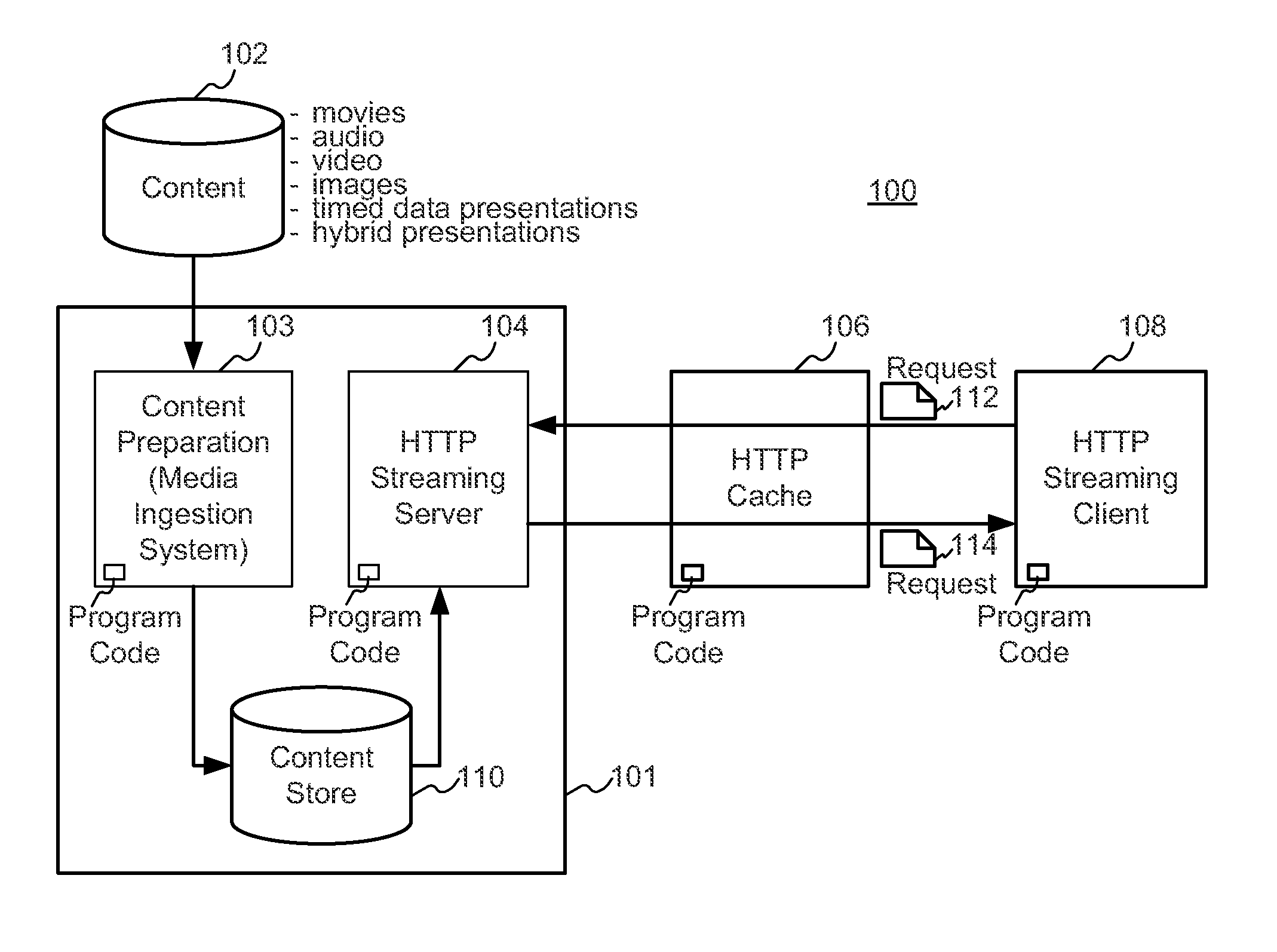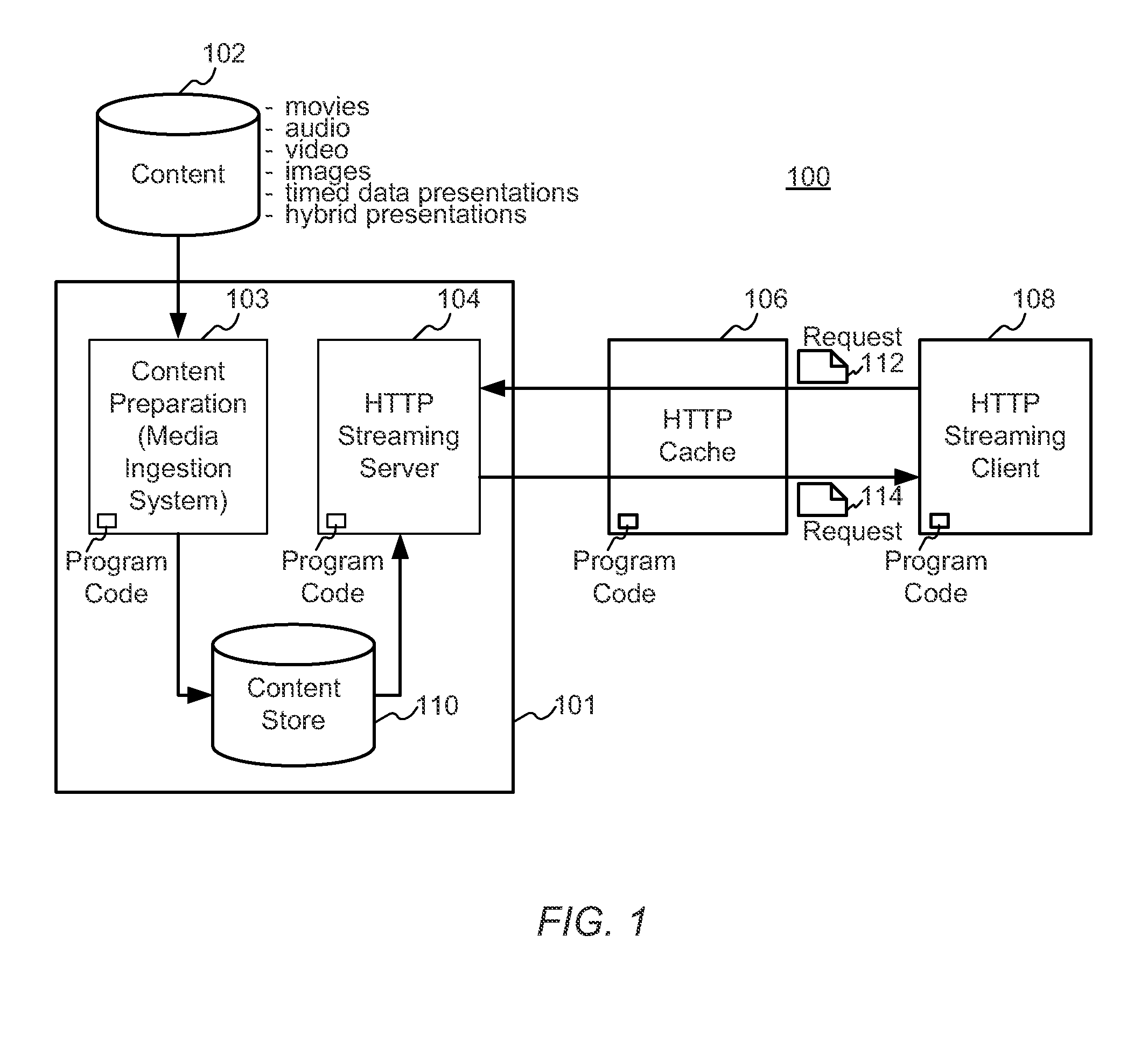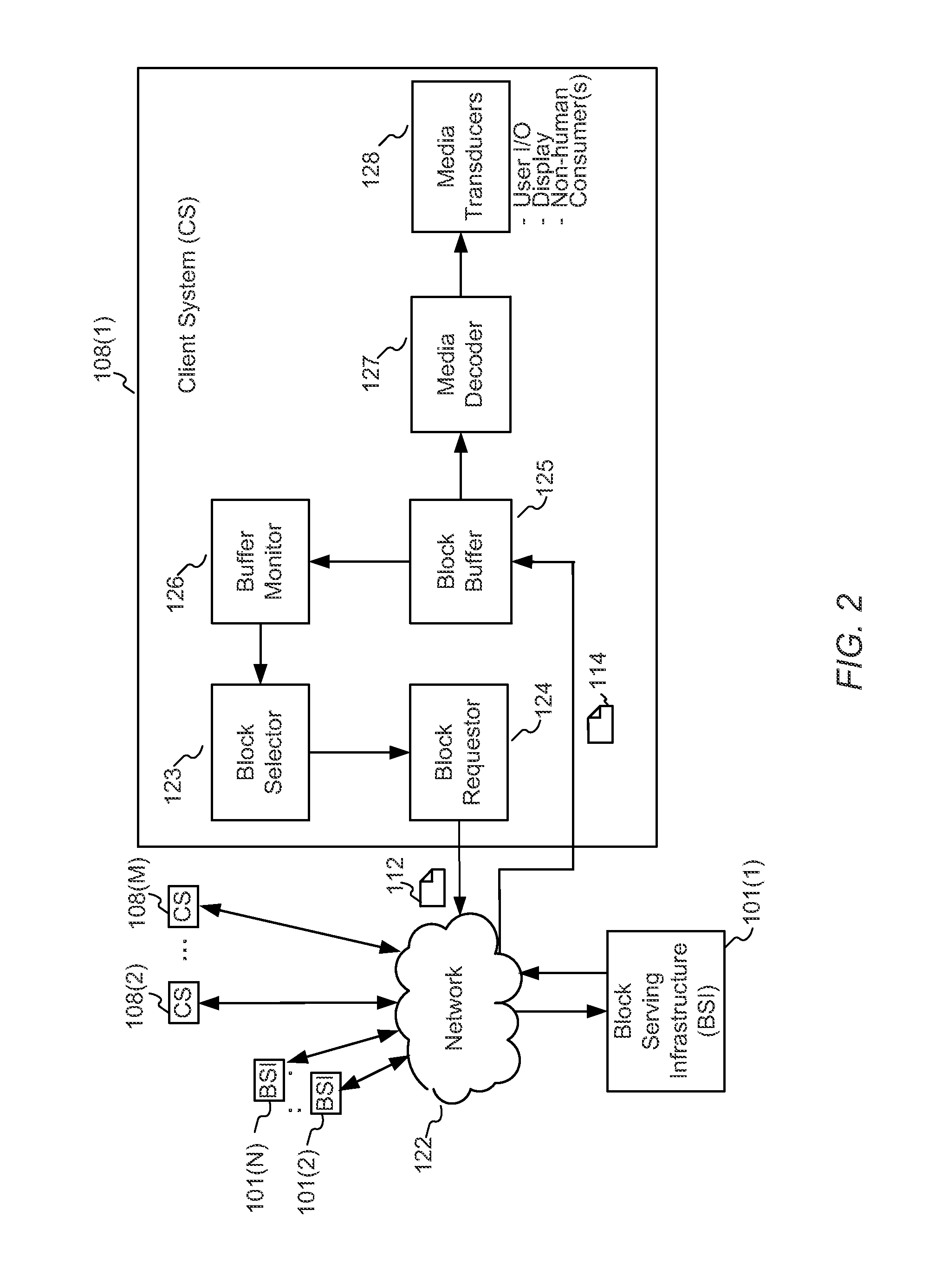Enhanced block-request streaming system using signaling or block creation
a technology of block-request and streaming system, applied in the direction of selective content distribution, television signal transmission, electrical equipment, etc., can solve the problems of poor user experience, consuming storage resources, consuming valuable network resources, etc., and achieve the effect of improving user experience and bandwidth efficiency, and better presentation
- Summary
- Abstract
- Description
- Claims
- Application Information
AI Technical Summary
Benefits of technology
Problems solved by technology
Method used
Image
Examples
example use
Case for MPD Updates for Live Services
[0351]Suppose a service provider wants to provide a live football event using the enhanced block-request streaming described herein. Perhaps millions of users might want to access the presentation of the event. The live event is sporadically interrupted by breaks when a time out is called, or other lull in the action, during which advertisements might be added. Typically, there is no or little advance notice of the exact timing of the breaks.
[0352]The service provider might need to provider redundant infrastructure (e.g., encoders and servers) to enable a seamless switch-over in case any of the components fail during the live event.
[0353]Suppose a user, Anna, accesses the service on a bus with her mobile device, and the service is available immediately. Next to her sits another user, Paul, who watches the event on his laptop. A goal is scored and both celebrate this event at the same time. Paul tells Anna that the first goal in the game was even...
PUM
 Login to View More
Login to View More Abstract
Description
Claims
Application Information
 Login to View More
Login to View More - R&D
- Intellectual Property
- Life Sciences
- Materials
- Tech Scout
- Unparalleled Data Quality
- Higher Quality Content
- 60% Fewer Hallucinations
Browse by: Latest US Patents, China's latest patents, Technical Efficacy Thesaurus, Application Domain, Technology Topic, Popular Technical Reports.
© 2025 PatSnap. All rights reserved.Legal|Privacy policy|Modern Slavery Act Transparency Statement|Sitemap|About US| Contact US: help@patsnap.com



